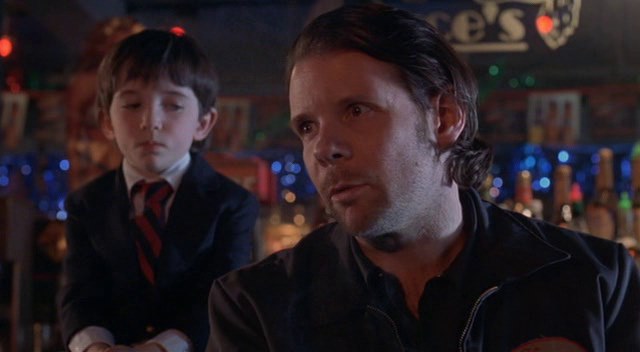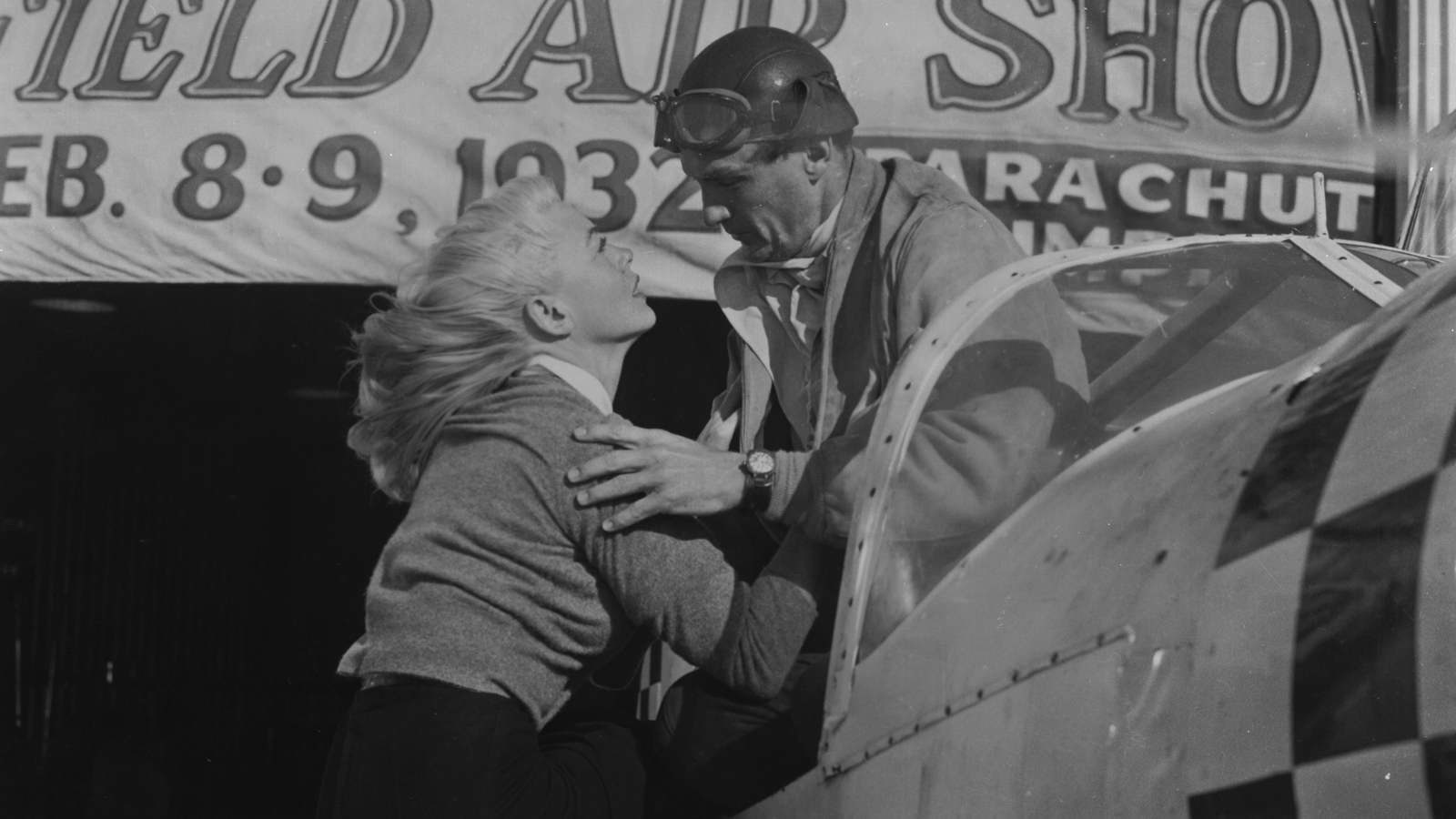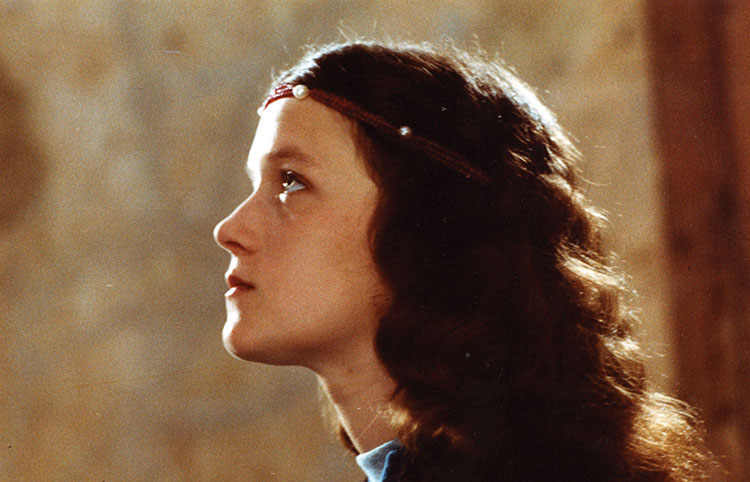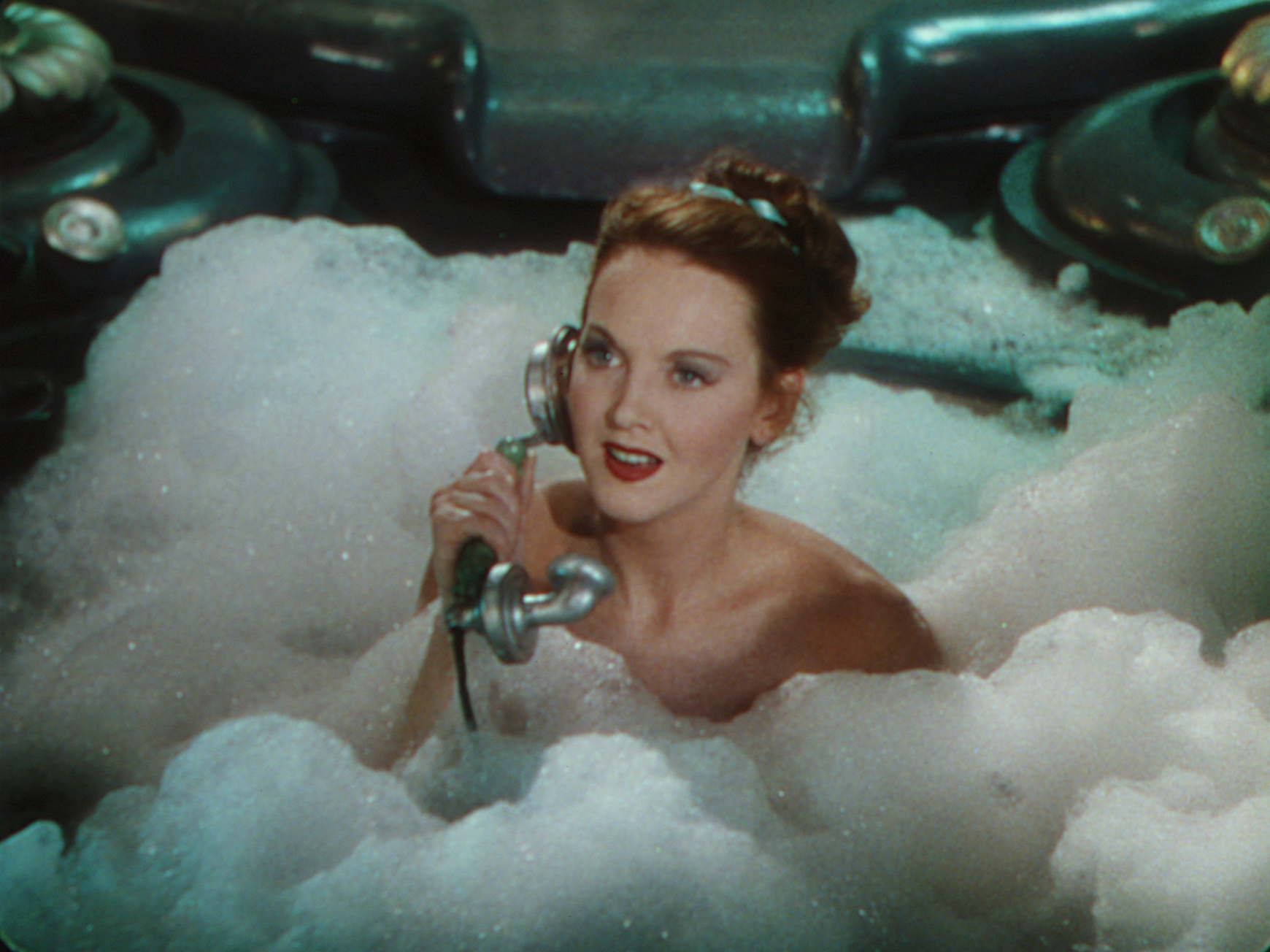
Friday, January 24 at 1pm
Ferrari
Directed by Michael Mann (U.S. 2023) 130 min. DCP. With Adam Driver, Penélope Cruz, Patrick Dempsey.
Michael Mann brings his astonishing command of technique and storytelling to bear on this emotional, elegantly crafted dramatization of the life of the legendary car manufacturer and entrepreneur Enzo Ferrari at a professional and personal/domestic fulcrum. Dovetailing these narrative strands, Mann effortlessly shifts gears between elegiac and spectacular, climaxing in an exhilarating and terrifying race across the Northern Italian landscape—a visual and aural wonder of revving machinery against bucolic splendor—that ranks with the greatest set pieces of Mann’s career (adapted from Lincoln Center program notes).

Friday, January 31 at 1pm
Henry Fool
Directed by Hal Hartley (U.S. 1997) 137 min. 35MM. With Thomas Jay Ryan, James Urbaniak, Parker Posey.
Situated between the working-class Long Island of Hal Hartley’s early films and the cosmopolitan world that some of his protagonists aspire to, Queens is the lovingly filmed setting for Hartley’s rowdy, hilarious literary saga Henry Fool. A depraved wanderer with a literary flair, Henry Fool (Ryan) inspires the shy sanitation worker Simon Grim (Urbaniak) to write a book-length poem that, of course, catapults him to literary fame. An unlikely ode to bohemian life, Henry Fool is also a bracing examination of the age-old struggle between art and commerce, and a domestic odyssey about young adults looking to escape their tortured family lives. Winner of the Best Screenplay award at Cannes (Museum of the Moving Image notes). 35mm print from the Chicago Film Society collection at the University of Chicago Film Studies Center.

Friday, February 7 at 1pm
Aspen
Directed by Frederick Wiseman (U.S. 1991) 150 min.
MacArthur fellowship-winning documentarian Fred Wiseman has been prolifically documenting American systems and communities for six decades. Aspen, in Wiseman’s singularly observational style, is “a portrait of the general boundary of the elite vacation destination and former mining town in Colorado’s Rocky Mountains. Wiseman weaves from mountainside silhouettes to bourgeois painting lessons in elaborate lodges to working-class social gatherings. As with many of Wiseman’s films, his camera seems to effortlessly reveal the complex nuances of its subjects and the spaces they exist in. At the dawn of the Clinton era, the emerging post-Reagan wealth disparity is palpable between Aspen’s working-class year-round residents and the wealthy winter vacationers. Wiseman captures telling moments and spontaneous debates regarding national topics like race, sex, class, and religion in a majestic Western setting that at times feels divorced from the rest of the country.” (Museum of Modern Art notes).
“Aspen is both a city portrait and a State of the Union address, a bracing mix of cutting social satire and heartfelt Americana.” — The Chicago Reader

Friday, February 21 at 1pm
Lying Lips
Directed by Oscar Micheaux (U.S. 1939) 80 min. With Edna Mae Harris, Carman Newsome, Robert Earl Jones.
One of the last films by the major force of independent black cinema in the first half of the twentieth century, Micheaux’s Lying Lips is a crime melodrama featuring Robert Earl Jones (father of James Earl Jones) as a police detective and Micheaux regular Edna Mae Harris as a nightclub singer sent to prison for the murder of her aunt. It is also, as the title suggests, in scholar Ron Green’s words, “a negative-image movie, a litany of weaknesses. In addition to the lying, the viewer is regaled with exploitative pandering, prostitution, habitual sexual promiscuity, illegitimate paternity, coerced marriage through faked pregnancy, superficial religiosity, male dependency on women in the forms of matriarchal bullying and financial payoff, chronic and acute domestic violence, murder, lack of discipline, lack of trust, inability to defer gratification, alcoholism, superstition, conspiracy, grand larceny, and the framing of an innocent person. It is no wonder that many in the black community were upset with Micheaux’s films.”
Playing with two films by Jennifer Reeder: Nevermind (1998, 18 min.) and Lullaby (1999, 18 min.), two parts of a series about the manifestation of gender and rebellion in media culture. Nevermind‘s non-narrative post-punk aria, inspired by Steina Vasulka’s Let it Be (1971), features Reeder lip-syncing to Nirvana’s “Smells Like Teen Spirit.” Lullaby features Madonna’s “Lucky Star” with footage Reeder shot at her hometown high school’s cheerleading try-outs.

Friday, February 28 at 1pm
The Tarnished Angels
Directed by Douglas Sirk (U.S. 1957) 91 min. 35MM. With Rock Hudson, Robert Stack, Dorothy Malone, Jack Carson.
The great German director Rainer Werner Fassbinder famously said that “Sirk has made the tenderest films I know; they are the films of someone who loves people and doesn’t despise them as we do.” In The Tarnished Angels – which features the same leads as Sirk’s celebrated Written on the Wind (1956) and is adapted from William Faulkner’s Pylon – the tormented souls the director loves are a WWI pilot now performing daredevil tricks in air-shows (Stack), his parachute jumper wife (Malone), their devoted mechanic (Carson) and the alcoholic journalist drawn into their unhappy lives (Hudson). “Sirk looks at these corpses with such tenderness and radiance that we start to think that something must be at fault if these people are so screwed up and, nevertheless, so nice. The fault lies with fear and loneliness. I have rarely felt fear and loneliness so much as in this film” (R.W. Fassbinder).

Friday, March 21 at 1pm
It Felt Like Love
Directed by Eliza Hittman (U.S. 2013) 82 min. DCP. With Gina Piersanti, Giovanna Salimeni, Ronen Rubinstein.
Turning “the coming-of-age formula into a foreboding nightmare” (Indiewire), Hittman has proven herself a talent to watch, a new voice in American independent film distinctive for its unflinching honesty, refreshingly unsentimental tone and adept visualization of the furtive, longing world of adolescence. During a languid Brooklyn summer, 14-year-old Lila pursues her sexual awakening, her overt advances in pursuit of an older boy unmasking her inexperience, quiet desperation and vulnerability.
“One of the most involving and sensually lush debuts in recent memory, and a striking afterimage for all of Sundance.” – Cinema Scope

Friday, March 28 at 1pm
Blue Steel
Directed by Kathryn Bigelow (U.S. 1989) 102 min. 35MM. With Jamie Lee Curtis, Ron Silver, Clancy Brown.
With Blue Steel, Kathryn Bigelow wrote and directed one of the rare contemporary police thrillers that can be read on another level—as a pointed questioning of whether the Hollywood action film, with its deep roots in misogynistic violence, can be used to critique itself. Jamie Lee Curtis stands out as a zealous rookie policewoman whose career choice poses an overt challenge to the patriarchal norm, a point provocatively made by Bigelow’s artful emphasis on the blatant phallocentrism of the policeman’s tools and trade. Frighteningly fast-paced and suspenseful, Blue Steel follows the increasingly disorienting cat-and-mouse game that suddenly unfolds between the novice cop and a vicious killer. For all of its intellectual sophistication, Blue Steel remains a viscerally charged experience, seething with palpable anger, sorrow and fear (Harvard Film Archive Notes).

Friday, April 11 at 1pm
Magnolia
Directed by Paul Thomas Anderson (U.S. 1999) 188 min. 35MM. With Tom Cruise, Philip Seymour Hoffman, Jason Robards.
If not his breakout film, Magnolia was the one that earned Paul Thomas Anderson full creative control from a Hollywood studio (no small feat). It was also the one that the director himself claimed was the best he would ever make. Per the Academy of Motion Pictures, this “multi-character epic focuses on the intersecting lives of several Angelenos in one eventful 24-hour period, culminating in an inexplicable, Biblical weather event. The film earned nominations for Anderson’s original screenplay, Aimee Mann’s original song ‘Save Me,’ and Tom Cruise’s energetic performance as a men’s rights speaker. The massive cast includes several alumni from Anderson’s Boogie Nights (1997), including Philip Baker Hall, Ricky Jay, William H. Macy, Alfred Molina, Julianne Moore, John C. Reilly, and Philip Seymour Hoffman in a warm and sensitive performance as nurse Phil Parma.” Print courtesy of ConstellationCenter Film Collection at the Academy Film Archive.

Friday, April 18 at 1pm
Lancelot du Lac – New 4K Restoration!
Robert Bresson (France 1974) 85 min. DCP. With Luc Simon, Laura Duke Condominas, Humbert Balsan. French with English subtitles.
In Lancelot du lac, Bresson turns from the historical chronicle of Joan of Arc to Arthurian legend. Bresson’s unusual take deflates any notions of heroism, seeming to regard the combat of the knights as mindless slaughter. And the adulterous love between Guinevere and Lancelot, far from being either a cause or a symptom of the decline of Arthur’s reign, becomes here its most human feature. The elliptical narrative is matched by an arresting use of framing and montage that break the Arthurian mythology into sharply delineated shards of armor, bloodshed and rigorously understated pageantry. The film is notoriously dark (visually speaking), as if the celluloid itself were manifesting the kingdom’s nefarious decay (Adapted from Harvard Film Archive notes).
“Irresistible. The highest level of Bresson’s achievement.” – Dave Kehr

Friday, April 25 at 1pm
Yolanda and the Thief
Vincente Minnelli (U.S. 1945) 108 min. 35MM. With Fred Astaire, Lucille Bremer, Frank Morgan, Mildred Natwick.
The story of an heiress and the swindler who pretends to be her guardian angel, Yolanda and the Thief is a fairy tale told in surreal Technicolor. The film’s art direction and choreography were inspired by Tiepolo, Miró, and Tanguy, yet it is fundamentally the vision of “Vincente Minnelli, a superb pictorialist as well as a great director, [who] let his imagination run wild, and the result is a captivating, dreamlike film composed of startling, outrageous, and sometimes sublime images. It has nothing to do with good taste—and that may be the secret of its peculiar appeal. It’s kitsch liberated, personalized, and intensified, to the point where taste drops out and the film becomes an act of crazy artistic courage” (Dave Kehr).